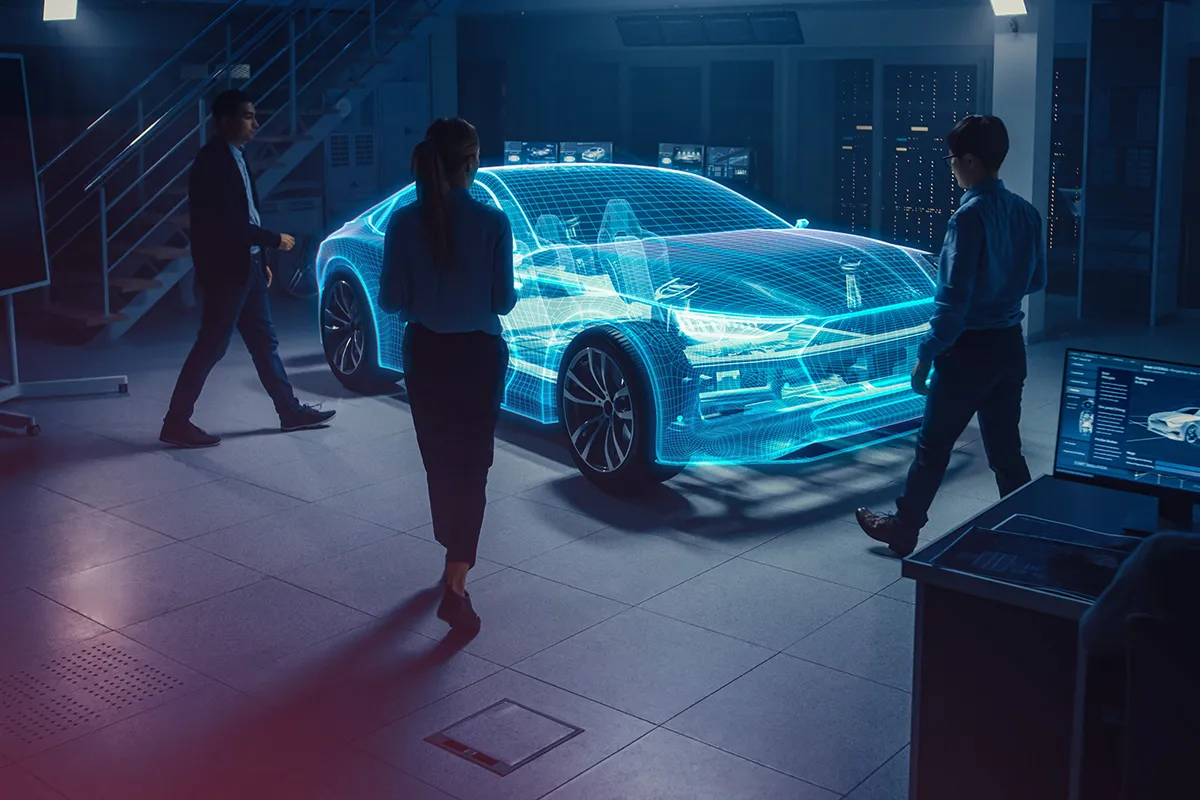Virtual dealerships: A way to connect with customers in a more immersive and convenient buying experience? We look at Fiat’s Metaverse Store to discuss the benefits and challenges of using AI-powered platforms in automotive sales.
As development of the metaverse progresses, automotive brands are looking for new ways to connect with customers and offer a more immersive and convenient buying experience. In recent months, two major car brands have announced plans to launch virtual dealerships powered by AI sales reps. One of them is Fiat, which recently unveiled its Metaverse Store, a virtual platform developed in collaboration with Microsoft and Touchcast. In this spotlight, we take a closer look at Fiat’s new buyer experience and how such initiatives can drive growth for businesses.
What is the Metaverse Store?
Fiat’s Metaverse Store is a virtual dealership that covers every stage of the buying journey, from discovery to configuration and purchase. Customers can inspect cars in 360-degree views and customize them by choosing the body, color, interior, and other features. They can also take a virtual test drive to experience the car’s different driving and EV battery charging modes. Besides the virtual environment itself, one of the most exciting features of the platform is the AI-powered “Fiat Genius,” which can answer questions about Fiat’s cars in real time. This provides customers with an opportunity to learn more about products they are interested in and get personalized advice from a knowledgeable expert. For those who prefer a more traditional sales experience, a human sales rep can also be contacted virtually.
The store can be accessed directly through Microsoft Teams without needing any additional hardware, making it easy and convenient for a large audience to visit the store using their existing phones. While we expect a strong shift to full VR experiences in the future, short-term, device-agnostic solutions (potentially with a combination of VR and non-VR devices) are likely to perform best.
Advantages and disadvantages of virtual dealerships
Commercially, virtual dealerships are an exciting opportunity for brands to connect with customers who wouldn’t visit a showroom and offer a more immersive buying experience. By using AI and other advanced technologies, brands like Fiat can provide personalized support to customers, while capturing efficiencies and streamlining processes. Our studies also show that these developments are in line with growing customer demand. Younger generations of customers are especially interested in these offerings.
However, virtual sales concepts also pose significant challenges. It’s critical that immersive solutions create real value for customers and are seamlessly integrated into existing customer journeys. Technological solutions are only one part of this and require careful process design and journey integration to create real, sustainable value. For example, newer text-to-speech solutions provide an option to create explainer videos by using AIs 10 times easier than ever before. Additionally, virtual sales may not be the preferred option for all customers, and there will likely still be a need for physical dealerships or vehicle testing solutions as part of the offer.










